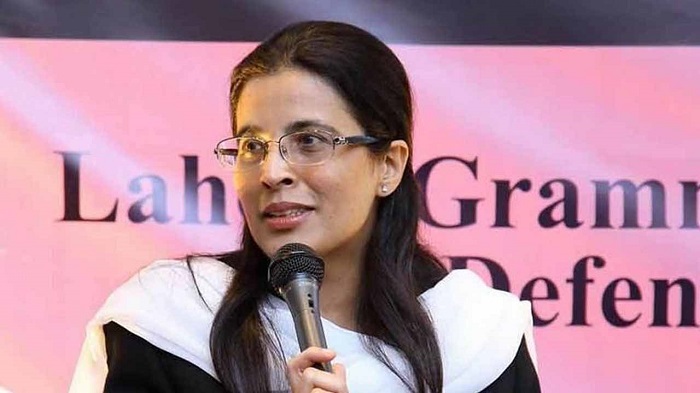Sustainable architecture is a design approach that seeks to minimize buildings' negative environmental impact by maximizing efficiency and moderation
ISLAMABAD: Judicial Commission of Pakistan (JCP) on Thursday made history by approving the nomination of the first woman judge to enter the Supreme Court.
Lahore High Court Justice Ayesha A. Malik’s nomination was secured by a majority of five to four during a heated JCP session that lasted nearly three-and-a-half hours.
Chief Justice of Pakistan (CJP) Gulzar Ahmed, senior puisne judge Justice Umar Ata Bandial, former judge Sarmad Jalal Osmany, Law Minister Barrister Farogh Naseem and Attorney General (AG) Khalid Jawed Khan supported Justice Malik’s candidature — who is fourth in the seniority list of the Lahore High Court.
However, Justice Qazi Faez Isa, Justice Maqbool Baqar, Justice Sardar Tariq Masood and Pakistan Bar Council (PBC) representative Akhtar Hussain opposed the selection.
If she is elevated following approval from an eight-member bipartisan parliamentary committee, Justice Malik will remain a judge of the Supreme Court until March 2031, and may even have a chance to become the first woman to be chief justice of Pakistan.
Conceding to the demand for an appointment criteria for the nomination of judges to the superior courts, the JCP also decided to constitute a committee to deal with the matter, which is expected to meet soon after it is notified.
At the outset of the meeting on Thursday, Justice Isa read out the letters he had earlier written to the CJP, highlighting the need to first determine the appointment criteria for the nomination of judges to the top court, rather than considering Justice Malik’s elevation.
Once the nomination and selection criteria are determined, Justice Isa suggested, this would help dispel misgivings that arbitrariness holds sway in the selection process, adding that Rule 3 of the Judicial Commission of Pakistan Rules 2010 only meant that the nominees be routed through the concerned chief justices, not that the concerned chief justices alone may nominate them.
Both Justice Baqar and Justice Masood backed the idea of developing a criteria first and voted against the nomination, but former judge Osmany was of the view that after having gone through all relevant judgments of the Supreme Court, especially the 1996 Al-Jihad Trust case verdict, Justice Malik was indeed the most deserving to be elevated as a judge of the apex court.
Talking to reporters after the sitting, Law Minister Farogh Naseem said the appointment was made on merit and hoped that the nomination would also receive a nod from the parliamentary committee soon.
The attorney general also wished Justice Malik all the best, but Sindh High Court Bar Association President Salahuddin Ahmed expressed his disappointment over the move. “Though it was wonderful to see a woman elevated to the Supreme Court, it is however deeply disappointing to see the JCP still remains resistant to framing any objective evaluation criteria for appointing judges and refuses to introduce any rules to check their discretion in this regard.”
He added that this did not bode well for the six appointments that would be made to the Supreme Court this year.
In a related development, Lahore High Court Bar Association President Maqsood Buttar moved a petition before the Supreme Court seeking directions that the JCP invite all relevant stakeholders; judges, senior lawyers and bar representatives, members of the parliamentary committee, the federal and provincial governments and civil society and structure the process of judicial appointments to the superior courts to make them more objective and transparent.
The petition also sought directions for the JCP to frame comprehensive and detailed rules/guidelines to structure both the process of and parameters for appointment.
The petition had also asked that until the criteria was developed, the JCP should stick to the seniority principle in the elevation of high court judges to the Supreme Court.
Justice Malik: a brief profile
Justice Malik completed her early education from schools in Paris and New York and then completed her senior Cambridge from the Karachi Grammar School.
She studied law at the Pakistan College of Law in Lahore and went on to do her LLB from the Harvard Law School Cambridge, Massachusetts USA, where she was named a London H Gammon fellow 1998-1999.
From 2001 to the date of her elevation as a high court judge, she worked with the law firm of Rizvi, Isa, Afridi and Angell, first as a senior associate and then a partner in charge of the firm’s Lahore office.
Justice Malik has appeared as a pro-bono counsel for several NGOs working on poverty alleviation, micro finance and skills-training programmes.
She is also author of a number of publications and has taught banking law at University of the Punjab and mercantile law at the College of Accounting and Management Sciences Karachi.
You May Also Like
ISLAMABAD: The ruling Pakistan Muslim League Nawaz (PMLN) emerged victorious on most seats in the by-elections, according to
SYRIA: Rockets were fired late Sunday from northern Iraq at a military base in Syria housing a US-led coalition, according to Iraqi security






